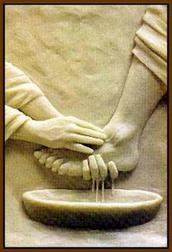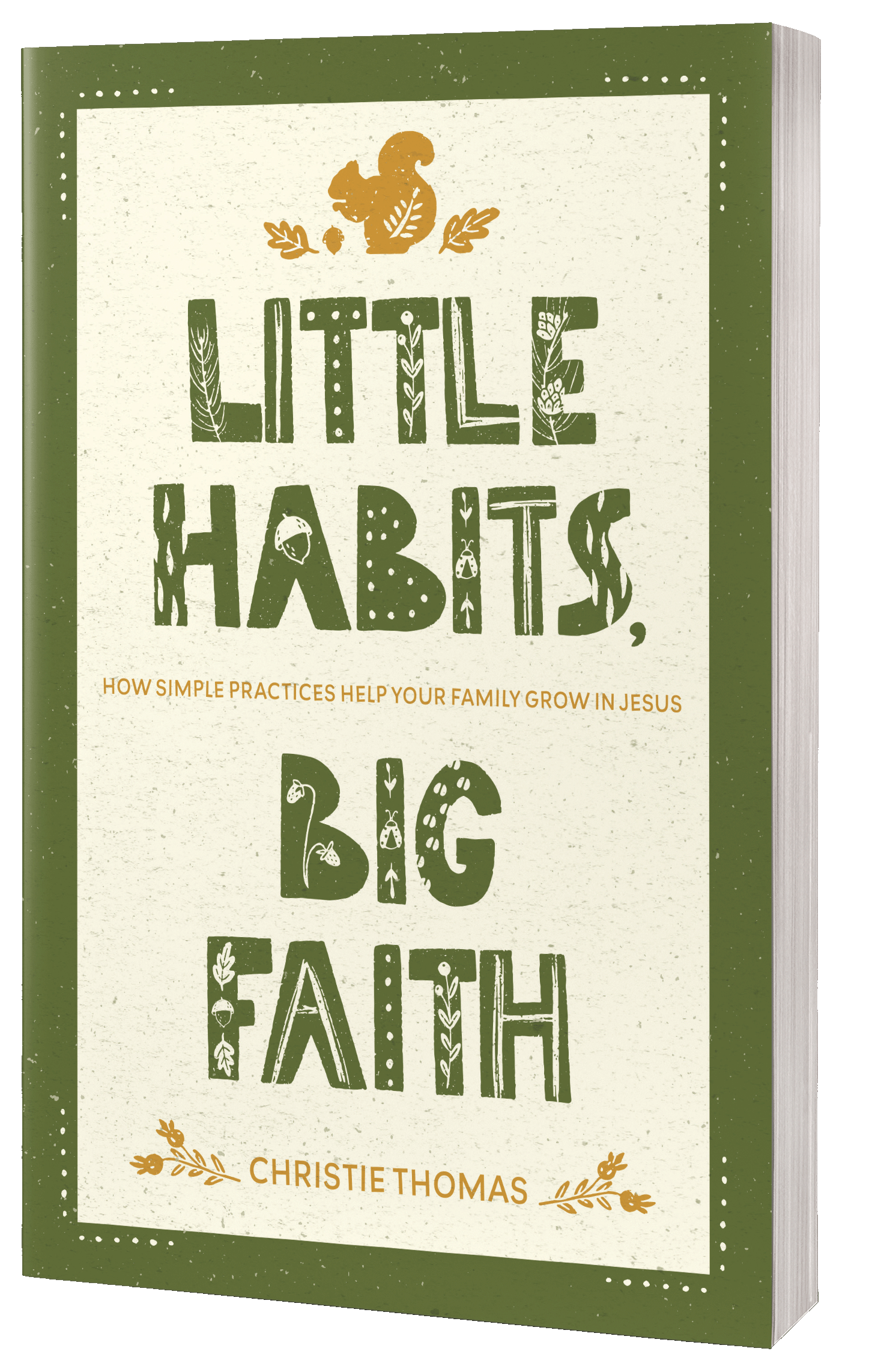I have an amazing friend that seems to thrive on routine. She does a load of laundry daily, swishes out the toilet whenever she uses it, gets eggs from her chickens each morning…you name it, it seems to have a designated place in her life. She doesn’t get stressed about keeping those routines though; she seems to truly get life through them.
That is SO not me. I try to blitz through the big cleaning jobs on Mondays and the only time my house is truly clean is when we are about to have company!
We are very different people, but we are great friends. When I was reading about people who connect with God via tradition, symbols, and rituals, I thought of her.
When they renovated their home, her husband installed a prayer closet in their bedroom. She is the friend who introduced me to some of the beautiful prayers of long-dead saints, prayers that can give meaning and structure to our worship. Only she can tell you what her Sacred Pathway is, but if I had to guess, it would be Traditionalism.
(SIDE NOTE: If you’re new here, you will want to check out the beginning of this series on Sacred Pathways, based on Gary Thomas’ book “Sacred Pathways: Discover your soul’s path to God”. Links are listed at the end of this post!)
The Traditionalist thrives on symbol, ritual, and sacrifice. This is another one of the Sacred Pathways, which, like the Sensate, has often been devalued by the evangelical view of spirituality. Yet in our desire for the spontaneity of the Spirit, we have disengaged from a lot of what has tied the church together for millennia. Liturgical-style churches are almost becoming obsolete, even though they can be a breath of fresh air for those who thrive on routine and ritual. Yes, much of what was formal religion is legalistic and non-lifegiving. But there are a lot of practices that, when used appropriately, can give a lot of meaning and structure to our faith and help us connect with God.
Take sacrifice, for instance. The practice of Lent has almost disappeared from evangelical Christianity, yet the acts of fasting and sacrifice for a period can rejuvenate a stagnant faith life.
Making the sign of the cross during prayer was likely a beautiful and meaningful practice originally, but has been taken for granted and thus has become a superstitious practice rather than a God-connection.
The Traditionalist may be one of the hardest Sacred Pathways to live out in the modern church because these practices have been demonized as legalism. As evangelical Christians, we need to remember that not everyone is the same and that there are indeed people who connect with God through ritual, symbolism, and sacrifice. If this describes you, know that you do not have to hide your true self! God has created you this way; you do not need to repress who you are, but find symbols, rituals, and sacrifice that are truly meaningful and draw you closer to God.
What are some ways that a modern, evangelical Christian can use these traditions to connect with God?
Rituals
Rituals can be as grand as annual celebrations, as moving as foot washing, or as individual as using rules of prayer.
1) Following the Christian calendar can be a powerful way of bringing cohesion and deep historical value to our faith.
Advent, Epiphany, Lent, Ascension, Pentecost – these are all traditional celebrations in the Church that have all but disappeared. Consider choosing a few, find some appropriate and meaningful practices for each one, and practice them consistently throughout the years. You may find, as I have, that you will need to access some Catholic websites and books to find what you’re looking for, but don’t be afraid; there is much that is beautiful and meaningful to be found if you are truly searching.
2) Using a rule of prayer can be very helpful if you often find your mind wandering during prayer.
Many people use the Lord’s Prayer as a basis for their own prayers; not to simply repeat but to inform and direct their own prayers. If you are interested in trying a personal liturgy to help with your prayers, these folks have both a book and a website.
3) Using an app like First 5
(developed by Lisa TerKeurst and Proverbs 31 Ministries) can be an incredible way to remember to give your first 5 minutes to God in the morning. The app basically hijacks your mobile device after your alarm goes off, helping you intentionally give that time to God.
A book like “The Sacred Way: Spiritual Practices for Everyday Life” by Tony Jones would be a great read if you’re looking to incorporate some of the ancient Christian practices into your faith walk.
[x_line]
Symbols
This is the symbol of the Christian Reformed tradition. It took me a while to understand why it is displayed in the front window of the church at which I work, but it has great meaning to me now. The cross represents the saving work of Christ on the cross, and the triangle is an acknowledgment of the working of the Trinity in our lives – Father, Son, and Holy Spirit.
A symbol is anything that is repeated often enough to have special meaning in your life.
Is there a symbol that reminds you of your walk with God? Perhaps it’s a purity ring from when you were a teenager that still reminds you of the choice to give yourself fully to only one person.
A tv remote might be a symbol of a struggle you have with laziness, or passing a certain STOP sign on your way home from work may remind you to prepare your heart and mind to be with your kids. I can’t tell you what kind of symbol will be meaningful to you, but if there is one that draws you closer to Christ, use it!
[x_line]
Sacrifice
Gary Thomas reminds us that “sacrifice is at the heart of Christianity…sacrifice keeps our idealized and often romantic expressions of divine adoration rooted in reality. Worship must not be reduced to mere emotional expression, for Christianity calls us to a commitment of the will.” (Sacred Pathways, p 87)
When we sacrifice, it may be permanently or for a time. We may…
- fast from food or Facebook for Lent.
- give sacrificially from our tax return.
- permanently give up an activity or habit that draws us away from God
The key to practicing ritual, symbolism, and sacrifice in a vibrant faith is to continue to pay attention.
They can easily become empty if we do them just for the sake of doing them.
When your heart is in the right place, the repetition can be incredibly life-giving.
[x_line]
If you feel like you would like to know more about this sacred pathway – it’s in-depth descriptions, warnings, and benefits, please snag yourself a copy of Gary Thomas’ book! Even if you just read the synopsis, it will give you a great idea of where I’m going with each of these posts.
Here’s a link to a quiz you can use to help identify your sacred pathway(s). Please remember though, that just like any online quiz, there are flaws. For example, I don’t rank very high in the “intellectual” pathway according to their particular examples, but I definitely feel like that is one of my strongest pathways. Anyway, try it; maybe you’ll learn something new!







0 Comments